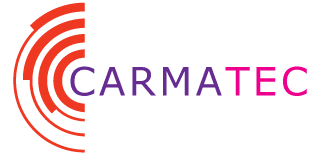In today’s digital landscape, businesses are generating and handling vast amounts of data. Efficient data management is crucial for optimizing operations, ensuring security, and making data-driven decisions. With 2025 approaching, selecting the right data management tool can be a game-changer for businesses of all sizes.
This blog explores the 15 best data management tools in 2025, helping you choose the best solution for your organization’s needs.
What Is Data Management?
Data management is the process of collecting, storing, organizing, and maintaining data to ensure its accuracy, accessibility, and security. It involves data governance, integration, storage, and analytics to support decision-making and business operations.
What are Data Management Tools?
Data management tools are software solutions designed to help organizations store, organize, process, and analyze data efficiently. These tools ensure data accuracy, security, and accessibility while streamlining workflows. They are essential for businesses that handle large amounts of data, enabling them to manage databases, ensure compliance, and extract valuable insights.
Why Use Data Management Tools?
Data management tools help businesses efficiently collect, store, process, and analyze data. They ensure data accuracy, security, and compliance while improving decision-making. Key benefits include:
- Improved Data Quality: Ensures clean, consistent, and error-free data.
- Enhanced Security & Compliance: Protects sensitive data and meets regulatory requirements.
- Scalability: Handles growing data needs as businesses expand.
- Automation & Efficiency: Reduces manual effort with automated workflows.
- Better Insights: Enables data-driven decision-making with analytics and visualization.
Using the right data management tool enhances operational efficiency and drives business success.
What to Look for in a Data Management Tool?
When choosing a data management tool, consider the following key factors to ensure it meets your business needs:
- Scalability: Can handle increasing data volumes as your business grows.
- Data Integration: Supports multiple data sources and formats for seamless connectivity.
- Security & Compliance: Ensures data protection and meets industry regulations like GDPR, HIPAA, etc.
- Automation & Efficiency: Offers automation features to reduce manual processes and improve productivity.
- Real-Time Analytics & Reporting: Provides insights through real-time data processing and visualization tools.
- Ease of Use: Has an intuitive interface and requires minimal technical expertise.
- Cost-Effectiveness: Fits within your budget while offering the necessary features.
- Cloud & On-Premises Support: Offers flexibility based on your storage and accessibility needs.
Selecting a tool with these features will help optimize data management and improve business efficiency.
Types of Data Management Tools
- Database Management Systems (DBMS) – Manage structured data in databases (e.g., MySQL, PostgreSQL, Oracle).
- Data Integration Tools – Help combine data from multiple sources (e.g., Talend, Apache Nifi, Informatica).
- Data Governance & Compliance Tools – Ensure data security and regulatory compliance (e.g., Collibra, Alation).
- Data Warehousing Tools – Store and analyze large datasets (e.g., Amazon Redshift, Google BigQuery, Snowflake).
- Data Analytics & Business Intelligence (BI) Tools – Help in reporting and visualization (e.g., Tableau, Power BI, Looker).
- Data Backup & Recovery Tools – Protect data from loss (e.g., Veeam, Acronis, Carbonite).
15 Best Data Management Tools for 2025
1. Microsoft Azure Data Factory
Azure Data Factory is a cloud-based data integration service that allows businesses to create data-driven workflows for orchestrating data movement and transformation. It supports hybrid data integration and offers AI-driven insights for better analytics.
Key Features:
- Scalable cloud-based ETL processing
- Integration with various data sources
- Built-in monitoring and security
2. Google Cloud Data Fusion
Google Cloud Data Fusion is a fully managed, cloud-native data integration service. It enables businesses to create, deploy, and monitor data pipelines efficiently.
Key Features:
- Real-time data integration
- Visual pipeline development
- Secure and scalable data management
3. Amazon Redshift
Amazon Redshift is a cloud data warehouse solution designed for large-scale data storage and analytics. It is optimized for performance and cost-effectiveness.
Key Features:
- High-speed query performance
- Machine learning-based query optimization
- Seamless integration with AWS ecosystem
4. Talend Data Fabric
Talend provides a suite of tools for data integration, data quality, and governance. It helps organizations achieve clean, compliant, and accessible data.
Key Features:
- Data quality monitoring
- Cloud and on-premises data integration
- AI-driven data governance
5. IBM InfoSphere Information Server
IBM InfoSphere is a robust data management solution that ensures the accuracy, consistency, and security of enterprise data.
Key Features:
- AI-powered data quality management
- Enterprise-grade governance tools
- Scalable data integration solutions
6. Snowflake
Snowflake is a cloud-based data warehouse that provides businesses with a scalable, secure, and cost-efficient solution for managing their data.
Key Features:
- Auto-scaling capabilities
- Secure data sharing across platforms
- Multi-cloud support
7. Oracle Data Management Suite
Oracle offers a comprehensive suite of data management solutions, including database management, integration, and analytics tools.
Key Features:
- AI-driven automation
- High-performance data processing
- Secure and scalable cloud storage
8. SAP Data Services
SAP Data Services provides businesses with a data integration and transformation platform, ensuring high-quality data governance.
Key Features:
- Advanced data profiling and cleansing
- Seamless integration with SAP applications
- Real-time data replication
9. Cloudera Data Platform
Cloudera provides a hybrid data cloud solution, offering unified data analytics and management for enterprises.
Key Features:
- Multi-cloud and on-premises support
- Advanced machine learning integration
- Secure and compliant data governance
10. Informatica PowerCenter
Informatica PowerCenter is a leading enterprise data integration platform, delivering robust ETL and data governance capabilities.
Key Features:
- AI-driven data integration
- High-speed data processing
- Advanced metadata management
11. Apache Hadoop
Apache Hadoop is an open-source framework that enables the storage and processing of massive datasets across distributed computing environments.
Key Features:
- Cost-effective data storage
- Scalable and flexible architecture
- Large-scale data processing capabilities
12. Collibra Data Intelligence Cloud
Collibra offers an AI-powered data intelligence cloud that helps businesses improve data governance and analytics.
Key Features:
- Automated data governance
- AI-driven insights
- Centralized data catalog
13. Alteryx
Alteryx is a data analytics and management platform that enables businesses to process, analyze, and visualize data efficiently.
Key Features:
- No-code/low-code data workflows
- Advanced predictive analytics
- Cloud and on-premises deployment
14. SAS Data Management
SAS provides enterprise data management solutions that help organizations ensure data quality, integration, and compliance.
Key Features:
- AI-driven data quality management
- Secure data governance tools
- Cloud and on-premises flexibility
15. Qlik Data Integration
Qlik’s data integration platform enables businesses to accelerate data delivery and improve analytics through real-time data integration and automation.
Key Features:
- End-to-end data pipeline automation
- Real-time change data capture
- Scalable hybrid cloud support
Conclusion
Choosing the right data management tool is essential for improving efficiency, ensuring data security, and driving business growth. The 15 tools listed above offer diverse capabilities, catering to businesses of all sizes and industries. Whether you’re looking for cloud-based scalability, AI-driven insights, or enterprise-grade governance, these data management solutions will help you stay ahead in 2025.
If you’re looking for expert guidance on implementing a data management services strategy, Carmatec offers end-to-end solutions tailored to your business needs. Get in touch with us today!
Frequently Asked Questions (FAQs)
1. What is a data management tool, and why is it important?
A data management tool helps businesses collect, store, process, and analyze data efficiently. It ensures data quality, security, and accessibility, which are crucial for making informed business decisions.
2. How do I choose the right data management tool for my business?
Choosing the right data management tool depends on your business needs, data volume, scalability requirements, security measures, and integration capabilities. Cloud-based and AI-driven solutions are recommended for modern enterprises.
3. Are cloud-based data management tools better than on-premises solutions?
Cloud-based tools offer scalability, remote accessibility, and automatic updates, while on-premises solutions provide greater control over data security. The choice depends on your organization’s priorities and infrastructure.
4. What are the key features to look for in a data management tool?
Key features include data integration, scalability, security, real-time analytics, automation, and compliance with regulatory standards. AI-driven insights and hybrid cloud support are also valuable.
5. Can small businesses benefit from data management tools?
Yes, small businesses can benefit by improving data accuracy, streamlining workflows, and gaining insights for strategic decisions. Many tools offer scalable pricing models to fit different business sizes.













